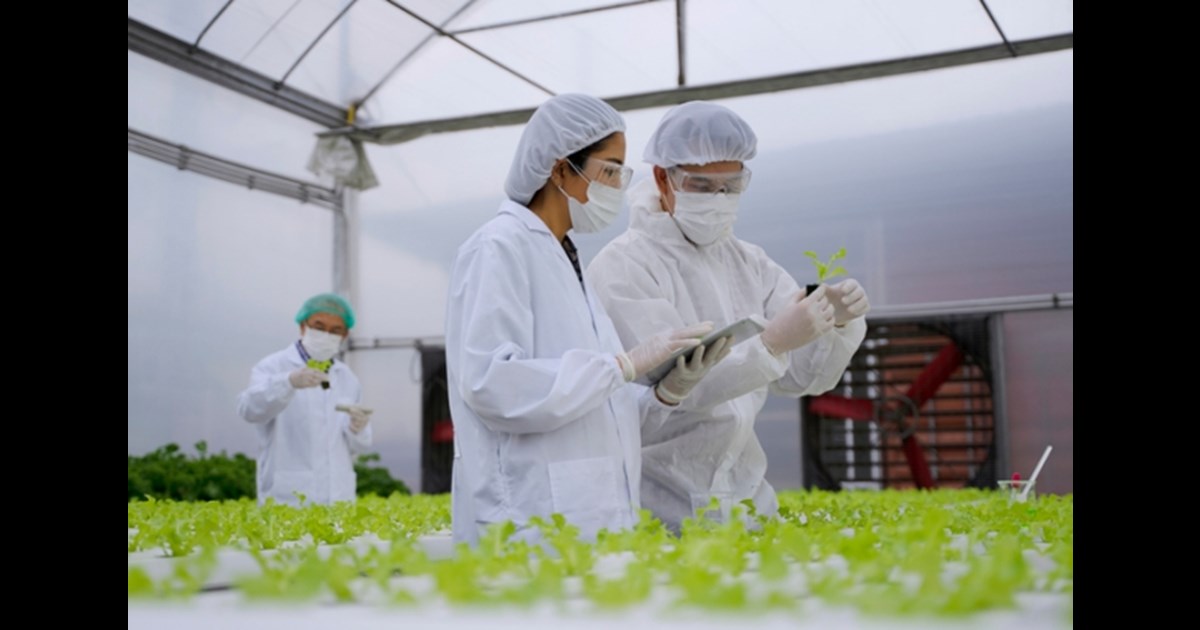Three urban smart farm trends on our radar
Even just a few years ago, smart farms seemed like a novelty in Korea. We heard about them through tech-savvy friends or read about them in the press, but it was still far removed from our daily lives. But these days, smart farms have become increasingly mainstream, even in dense, urban cities like Seoul. So common are smart farms these days, you might even spot one on your morning commute or grocery run.

Over the past decade, TYM has also been working tirelessly to advance ICT-enabled agricultural machinery. The increasing autonomous capabilities of tractors, along with the digitized data available through our Smart Agricultural Management program, is invaluable to farmers whose livelihoods rely on multitasking.
According to the Korea Agency of Education, Promotion and Information Service in Food, Agriculture, Forestry and Fisheries (EPIS), the size of greenhouse farms in Korea using smart technology grew threefold from 2016 to 2020. As a growing portion of our food originates from controlled environments, greenhouses are expanding, but we’re also seeing the opposite effect: As ICT in agriculture becomes more accessible, smaller farm units are popping up in confined urban spaces. Smart farms are no longer limited to sprawling rural greenhouses. They are now thriving in the heart of the metropolis.
Smart farms are literally everywhere
Urban farming has long been associated with rooftops and balconies, but some innovative and resourceful companies have changed that notion. All across the country, smart farms are thriving underground. You can find them in Seoul’s underutilized subway stations and Chungcheongbuk-do’s abandoned tunnels. No light? No precipitation? No problem. Driven by technology, these farms are no longer bound by space or climate restrictions.
Since 2019, the unused plaza next to exit 2 of Sangdo Station has flourished into an underground farm. Metro Farm is a collaboration between Seoul Metro and the smart farm company Farm8. Together, they run the 394 m² facility that boasts an automated farm and a cafe which sells fresh salad and juice—all made from crops harvested that day. There is also an experience zone where visitors can learn about the technology and the future of agriculture.
Further east is another basement terminal that is home to a massive tech-enabled farm. Deep under Nambu Bus Terminal Station is a vast farm operated by the company NextOn. This vertical underground farm is capable of harvesting around 100 tons of crops per year from nearly 7,000 ㎡ of cultivation area. Automated robots harvest the crops and supply them to e-commerce companies for early-morning delivery or food halls in department stores in the city.

Smart farms are coming direct to consumers
Like many smart farm companies, Happy Farm (팜세계로) have long grown and supplied fresh produce to major F&B corporations. Now, they are installing their technology in places where consumers can interact with the products directly. By working closely with companies and organizations, these smaller smart farm units have made their way into major marts, restaurants, and other unlikely venues.
A whole smart farm ecosystem housed within a major supermarket is now starting to become a common sight. Need some ssam greens for tonight’s barbecue dinner? Just snap some off the stem at your local mart. What about a crisp leaf of lettuce on that burger you are eating? Good Stuff Eatery in Gangnam uses smart farming technology to grow ingredients for their burgers and salads directly inside the restaurant. In a controlled environment, there is no need for pesticide. With a vertical circulation and filtration system, there is no need for messy watering. Smart farming enables this farm (and restaurant!) to serve the freshest meals with minimal resources.
Smart farms are becoming the main attraction
As more government agencies continue to invest in smart farming, one district in Seoul has decided to invest in a holistic smart farm experience. When the Guro Smart Farm Center in Guro-gu opened in 2021, it was one of the first urban attractions to offer experiences in smart farm technology. Layers of salad greens grow in the indoor vertical farm, and strawberries thrive year-round in the smart greenhouse. Locals can sign up for the salad-making workshops and go strawberry-picking in the greenhouse. The crops grown in the Smart Farm Center can be purchased by local residents at a subsidized price, and others are sold through eco-friendly cooperatives. From cultivation to education, this smart farm offers the whole smart farm experience to empower residents and attract visitors.
Now is the time to explore opportunities in urban smart farming
Urban smart farm opportunities are growing as the government continues to invest in nurturing talent. Some local governments like Seoul’s Seocho district now offer smart farm training programs to its residents. Hubs like Smart Farm Innovation Valley nationwide continue to expand their programs to equip professionals with skills they need to succeed as modern growers. Even children’s museums have started to incorporate smart farm programs to get the next generation excited about the future of agriculture.
Smart farms that are both ubiquitous and accessible have become a fixture and a driving force behind recent agricultural advancements. These trends make it clear that Korea is at a pivotal and exciting juncture of technology and agriculture. If you are interested in smart farming, now is the time to discover these opportunities and break new ground.





